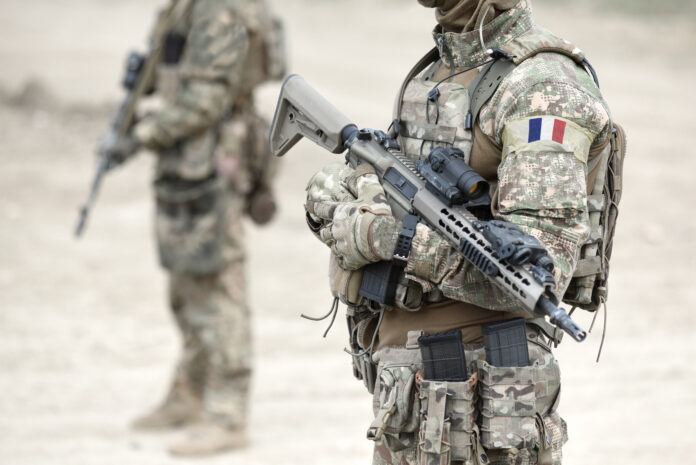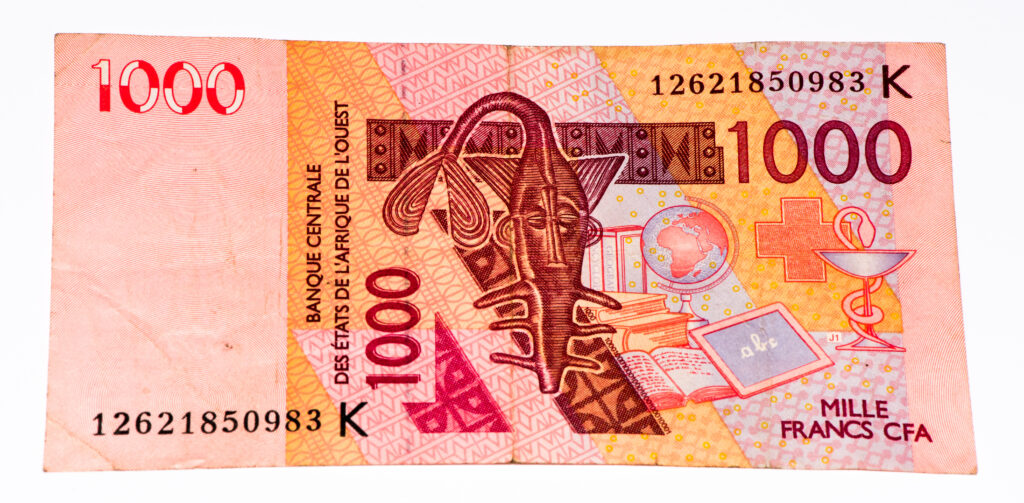In the aftermath of the military coup in Niger and the French threat to intervene, Ayaan Institute director Jahangir Mohammed calls for those genuinely concerned about Africa to work towards ending the ongoing exploitation of former African colonial states.
A military coup in Niger overthrowing the pro-Western government has led to the threat of military action by West African regional bloc Ecowas and sanctions by France and the USA to restore “democracy.” There have also been public demonstrations against France in some African countries.
Whilst military interventions tend not to be long-term political solutions for any country, this coup, and others like it in Africa, appears to have popular support.
The coup has also brought attention to the dire economic conditions of African states and the strength of feeling against French post-colonial exploitation of their resources.
That is why so many Africans try to escape the continent in search of a better life elsewhere, especially in the last two decades.
Yet Muslims been indifferent to the suffering of our brothers and sisters in Africa and generally of Africans.
But if we are genuinely concerned about poverty and underdevelopment (even African migration), we must work to bring an end to the neocolonial exploitation of Africa by France and other European powers.
Subscribe to our newsletter and stay updated on the latest news and updates from around the Muslim world!
France colonised a large part of Western Africa in the 19th and 20th centuries. Twenty African states once came under the rule of the French colonial empire. These states are still rich in mineral wealth such as gold, diamonds, uranium, petroleum and important agricultural produce.
Colonial France – realising its era of direct colonialism would come to an end – ceded “independence” to some of its colonies in the mid-20th century. However, colonial exploitation of those countries continued under exit arrangements.
This happened in several ways. When Guinea decided in 1958 to become independent, the French administration and its elite decided to take all their property out of the country. They also destroyed everything that they believed represented the benefits of their colonial rule. So infrastructure from schools to public buildings and businesses were destroyed or set on fire.
Other African states (wanting to avoid this scenario) then signed up to French conditions for leaving colonial rule. This included the payment of a colonial debt for what France claimed it had spent on “developing the country.” Also included in colonial debt was the repayment of French reparations paid to European slave owners in return for the abolition of slavery. Thus the victims were made to pay the oppressors to end their own oppression.
There are no accurate figures for how much colonial debt has been paid to France by African states, but estimates run into hundreds of billions of dollars a year.
After Guinea, independence was only accepted for colonies who signed “Cooperation Accords” – effectively colonisation continuity pacts. The African peoples were powerless to resist, lacking military means and being divided by European states into less-populated borders.
Since the 1950’s there are many conditions of these agreements that tie former African colonial states into exploitative relations with France. As well as payment of colonial debt some of these conditions included:
- French first right to buy any raw material or natural resource found in the land of ex-colonies before they are allowed to seek other partners.
- French priority in the award of contracts regardless of better value for money elsewhere. This has led to large swathes of the economies of these countries ending up in the hands of French companies.
- French exclusive right to provide military equipment and train the country’s militaries. This has made France into one of the world’s largest military hardware suppliers.
- Under “defence agreements” France has a right to intervene militarily in African countries, and to station its troops permanently in military bases and facilities run totally by the French. Currently, France is refusing that its troops should leave Niger after the coup.
- Military alliances cannot be entered into with any other country except with the approval of the colonial state.
- An obligation to ally with France in situations of war and global crisis. It is often forgotten that over one million Africans fought for France in the Second World War.
- French must be the official language of countries and their education systems. French culture is spread by “Francophonie” organisations under the French Foreign Affairs Ministry.
French currency
But the real cash cow for France and a major reason for the impoverishment of Africa is the obligation to use the French colonial currency FCFA (Franc of French Colonies in Africa and French Community of Africa after independence or CFA).
In pre-colonial times Africans used their precious mineral and agricultural goods as a means of economic transaction, exchange and stability. Whilst money did exist it is was not the primary means of trade.
But when the colonial states came, they imposed their currency on the colonies, the franc was introduced in 1795 and local methods of exchange lost influence. Both France and Britain eventually abandoned the gold standard (the value of their currencies was backed up by gold). The pound and the franc (because of global empires) then became a source of exchange against which other state’s money could be pegged and measured.
In 1945 the CFA Franc was created across 14 West African states grouped into two separate economic monetary unions, using two distinct CFA Francs. Both CFA francs are pegged to the Euro through France which is credited with providing some stability to the exchange rates of those countries.
The CFA Franc effectively binds these 14 African countries to France: Benin, Burkina Faso, Ivory Coast, Mali, Niger, Senegal, Togo, Cameroon, Central African Republic, Guinea Bissau, Equatorial Guinea, Chad, Congo-Brazzaville, and Gabon. A fifteenth state Comoros uses the Comorian Franc.
The CFA Franc is simply a means of maintaining colonial control. For decades African Central Banks have been required to deposit a large proportion of their CFA currency reserves into the French treasury. At one point it was as high as 65% and more recently 50% of all the reserves of these 14 countries.
After liabilities, it is claimed that African states are left with just 15% of their own cash reserves and if they wanted more, they would have to borrow at commercial rates of interest. So, whilst the French state was able to use the African reserves to bolster and strengthen its own economy and exchange rate, African states could not use the reserves to strengthen their economies.
This has compounded debts which are then managed by the IMF and World Bank which then imposes further detrimental policies. The French argue this system provided economic stability to the CFA zones, but that is disputed. This situation existed unchanged until December 2019 when reforms were made. However African economists argue that this has made little difference and that the plans to introduce and create a new currency called ECO is just camouflage.
What’s more, France’s post-colonial agreements have been maintained through military and political subterfuge in Africa’s political affairs. The French have been actively involved in coups in these countries and other parts of Africa. There have been 45 coups in the former French colonies and 22 in other African countries.
Why Africa matters for the Muslim world
All this matters for Muslims. Muslims are the majority population across these countries and those like Niger, Burkina Faso, and Mali are majority Muslim. By 2050 the population of these countries will increase greatly and will be greater than the population of the EU. Africa matters for the revival of an Islamic civilisation given its past history.
Muslims have for far too long been indifferent/disinterested in the suffering of their brethren in Africa and generally of Africans.
The Muslim world and all those genuinely concerned about poverty and underdevelopment (even African migration), must work to bring an end to the neocolonial exploitation of Africa by France and other European powers.
The OIC, European Union, and UN must all work to end all colonial systems of exploitation by former colonial powers. Until then, their programmes to end global poverty and deal with the refugee and migration crises are just window-dressing for continued European and Western colonialism and imperialism.
Burkina Faso, Mali and now Niger are threatening to exit the post-colonial system of exploitation by France. France will not let go easily, after all its own status as a global power is dependent on it. The Muslim world and African states must stand in solidarity with Niger and against French and U.S. intervention. What we are seeing in Africa is the latest phase in the struggle for independence from colonialism.
This article first appeared on the Ayaan institute website.




















